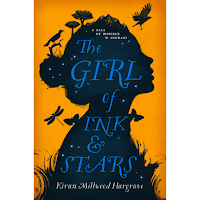Library+ Loyalty Card
“A book is a
dream that you hold in your hands."- Neil Gaiman
Reading is an important
past time. Reading a book (or preferably books) expands your mind and
vocabulary, and according to a 2014 report from The Reading Agency, there is “clear evidence that reading for pleasure can increase empathy,
improve relationships with others, reduce the symptoms of depression and
dementia, and improve well-being throughout life.”* However,
like a lot of things, the art of sitting down with a book seems to be losing
out to catch-up TV and smart phones.
This year, our goal at Library+ is to encourage
people to read for fun. No, not just stuff for your courses but fiction books. We’ve launched a Loyalty Card Scheme to
encourage reading for pleasure and it’s really simple to get involved! Just come
to the Library main desk to sign up for your card, then borrow and read 6 books
before June. Once your card has 6 stamps on it you’ll be entered into a prize
draw to win an Amazon Kindle!
Library+ Loyalty Card Prize event
Not only will the winner get an amazing
prize but we are also holding an awards event for the Loyalty Card Scheme on
Wednesday 14th June. All those who have completed Loyalty Cards will
be invited and we will be joined by local author Eva Jordan and children’s
fiction writer Alexander Gordon Smith. All these things are great incentives to
start reading and there is no closing date for signing up to a card!
 |
| Picture/ Poster by Peterborough Regional College |
Books! Not sure where
to start? Here’s our top picks-
-
I knew
you were trouble- Paige Toon
-
Harry
Potter and the philosopher’s stone (illustrated edition)- JK Rowling The son of Neptune- Rick Riordan
-
Street cat Bob (quick read edition) – James
Bowen
-
The Girl of ink and stars- Kiran
Millwood Hargrave
-
Lord Loss- Darren Shan






